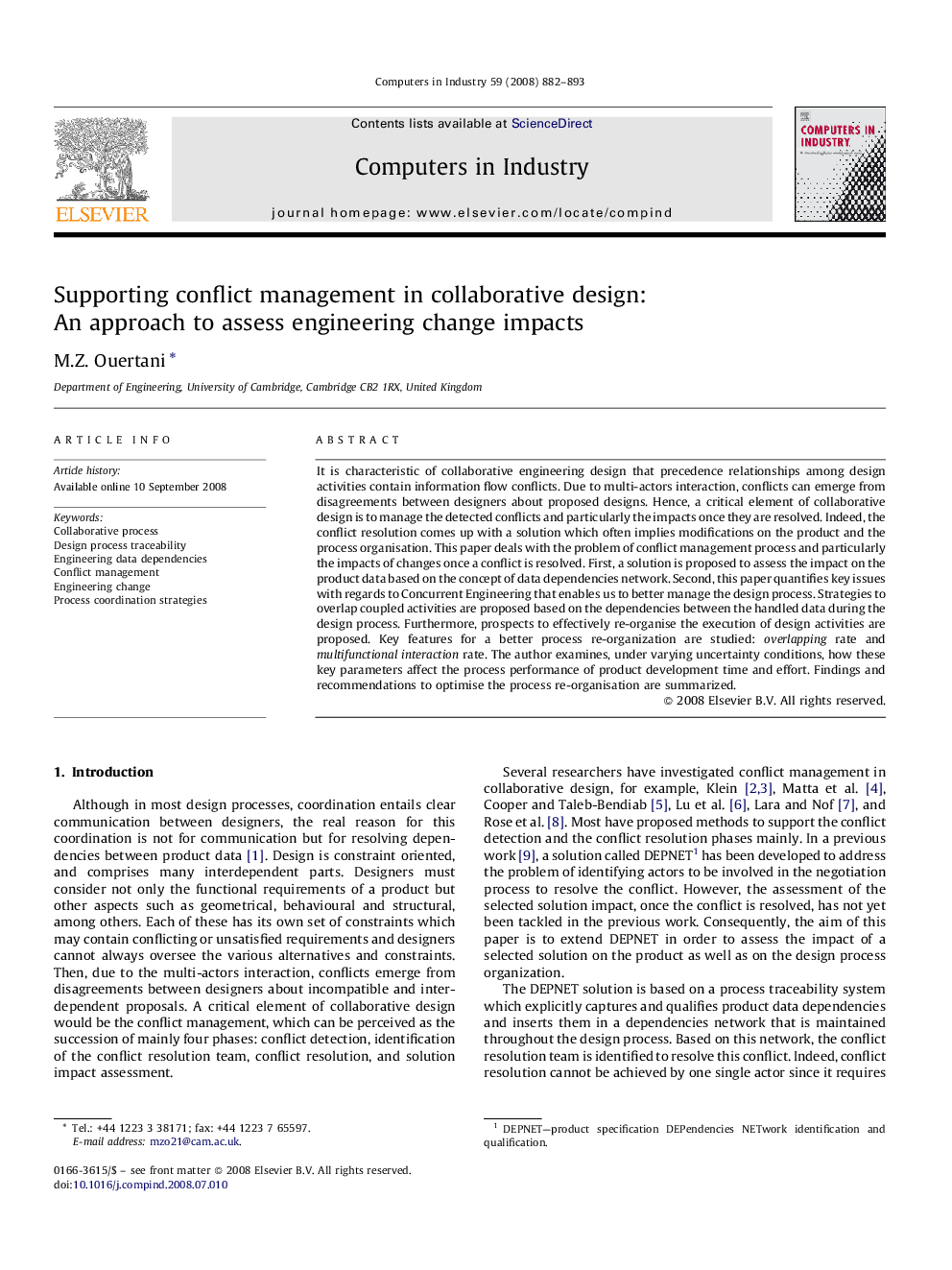| Article ID | Journal | Published Year | Pages | File Type |
|---|---|---|---|---|
| 509282 | Computers in Industry | 2008 | 12 Pages |
It is characteristic of collaborative engineering design that precedence relationships among design activities contain information flow conflicts. Due to multi-actors interaction, conflicts can emerge from disagreements between designers about proposed designs. Hence, a critical element of collaborative design is to manage the detected conflicts and particularly the impacts once they are resolved. Indeed, the conflict resolution comes up with a solution which often implies modifications on the product and the process organisation. This paper deals with the problem of conflict management process and particularly the impacts of changes once a conflict is resolved. First, a solution is proposed to assess the impact on the product data based on the concept of data dependencies network. Second, this paper quantifies key issues with regards to Concurrent Engineering that enables us to better manage the design process. Strategies to overlap coupled activities are proposed based on the dependencies between the handled data during the design process. Furthermore, prospects to effectively re-organise the execution of design activities are proposed. Key features for a better process re-organization are studied: overlapping rate and multifunctional interaction rate. The author examines, under varying uncertainty conditions, how these key parameters affect the process performance of product development time and effort. Findings and recommendations to optimise the process re-organisation are summarized.
